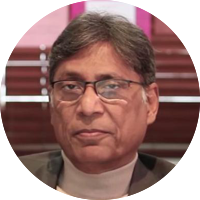Zakariya (Zachariah)
Zakariya, also known as Zachariah in the Biblical narrative, was the progeny of Prophet Suleiman (Solomon). He was a priest who looked after Al-Aqsa, a place of worship in Jerusalem. It is said that he was asked to float a pen in the river along with others to determine the custody of Maryam. As it was his pen that stayed afloat, he was appointed her patron. Even while he was a righteous person himself, his kin had crossed to the other side. Zakariya often worried about his succession as he was nearing his old age and his wife was still barren. He, thus, prayed to God for a son who could carry his progeny further and serve mankind. His wife was then blessed with Prophet Yahya who took up the mantle effortlessly and became a symbol of piety. Zakaria did not die a natural death; he was sawed into two halves as he hid in the bark of a tree to escape the angry Israelites.
Zakariya, also known as Zachariah in the Biblical narrative, was the progeny of Prophet Suleiman (Solomon). He was a priest who looked after Al-Aqsa, a place of worship in Jerusalem. It is said that he was asked to float a pen in the river along with others to determine the custody of Maryam. As it was his pen that stayed afloat, he was appointed her patron. Even while he was a righteous person himself, his kin had crossed to the other side. Zakariya often worried about his succession as he was nearing his old age and his wife was still barren. He, thus, prayed to God for a son who could carry his progeny further and serve mankind. His wife was then blessed with Prophet Yahya who took up the mantle effortlessly and became a symbol of piety. Zakaria did not die a natural death; he was sawed into two halves as he hid in the bark of a tree to escape the angry Israelites.
Additional information available
Click on the INTERESTING button to view additional information associated with this sher.
About this sher
rare Unpublished content
This ghazal contains ashaar not published in the public domain. These are marked by a red line on the left.

